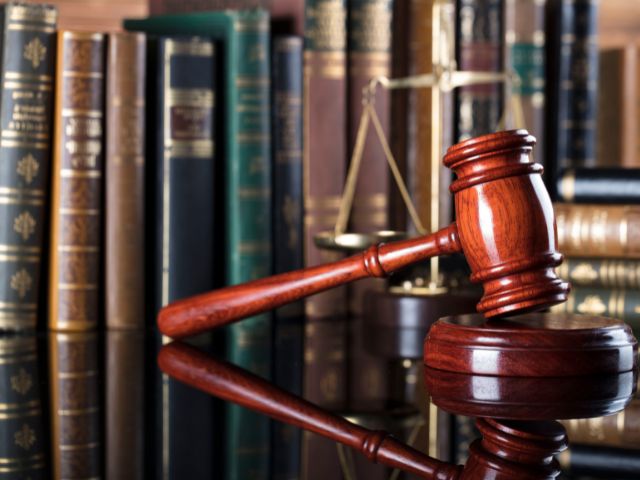The overturning of a judicial ruling in the Saudi system is done by way of appeal through the appellate ruling before the Supreme Court, and the request for cassation is a review of the ruling issued by the judge in the event that some conditions have been met to accept the cassation, and we will explain this to you in the article on the Saudi judicial ruling And how is the request to overturn the ruling in the Saudi system?
What is the overturning of the judicial ruling in the Saudi system?
The Saudi judicial system is that when any lawsuit is filed, it will be transferred to the competent court, which is the court of first instance, and that reverses the judicial ruling in the Saudi system. The case for thirty days from the date of delivery of the judgment.
If the appeal is accepted, then a judgment will be issued, either fully or partially supporting the initial judgment, or it will be reversed and the issued judgment will acquire the character of estrangement except in some exceptional cases and it can be done by the Court of Cassation in the Kingdom of Saudi Arabia and the Court of Appeal.
Is it permissible to object to the ruling of the Court of Appeal?
The appeal is one of the legal means to challenge the administrative decision. When the appeal becomes necessary, this means that the person believes that their rights have been violated under the law or that the law was ambiguous. It is not permissible to refuse to accept the appeal if it meets all of the following conditions:
The Court of Appeal does not agree with the ruling and will appeal the case to the Supreme Court.
The appeal is a method that differs from others in that it applies to the final decision, and not to appeal against the previous decision. The appeal may be submitted to the Supreme Court, and the appeal is not an ordinary appeal in court, as it is considered a special procedure to correct errors.
It is not a third-class body that can re-examine the case and issue the appropriate judgment in correction. Therefore, it differs from appealing the error, which is a corrective measure. An appeal is not a trial. An appeal is not the same as a retrial when necessary. The Court of Appeal may change its decision when reviewing its previous decision, which is to move away. Because of an error in that first decision, and the appeal session is the one that determines the extent to which the appeal request conforms to Saudi law.
How is the request to overturn the ruling in the Saudi system?
Overturning the judicial ruling in the Saudi system, the court’s procedures may require accuracy and distinction, and if the judges’ rulings are left unattended, this may lead to a defect in the ruling and may result in a defect in the judge’s ruling because an error may result from humans, and that humans may make mistakes, so the case is presented The first instance court of the Supreme Court in which the litigants have an interest.
The pleadings system may provide for the survival of judicial rulings and the achievement of justice in them, and there are many ways to appeal, including appeal, cassation, and a request for reconsideration.
What are the conditions for accepting the veto?
As soon as I looked at several judicial rulings issued by the Commercial Department of the Supreme Court for the year 1442, where I found more than ten rulings, all of which were rejected, due to the non-acceptance of the objection and the non-acceptance of any of them, which is that one of the cases stipulated in this system may call for litigants to be instructed on how to submit the objection. .
What is meant by objecting to the ruling and requesting its annulment is to review the ruling issued by the judge and nullify it if there is a need for that. An appeal by cassation may be considered an unusual way to appeal rulings, and it is concerned with the consideration of the Supreme Court, as it invalidates the contested ruling for one of the reasons that call for cassation other than appeal by other means.
Article 193 of the Shari’a system may stipulate that the convict may request the annulment of the ruling issued by the Court of Appeal, and when the objection is based on Islamic Sharia and the regulations issued and not properly formed as stipulated in the law, or the issuance of the ruling in a court or circuit that is not competent, or the error In incorrectly adapting or describing the incident.
The urgent case is fifteen days, and if it is not filed within this time frame, it is considered rejected. The objector whose appeal was rejected before the Court of Appeal during these two periods loses his right to file an appeal. The decision in cassation is required and that the judgment be final by the Court of Appeal and in support of the Court of First Instance.
The cassation appeal may not be allowed except for the specific reasons exclusively because the Supreme Court is not a court of litigation unlike the appeal to the court of second degree and that the summary must be based on legal or factual reasons and not specific reasons.
And if the judicial ruling in the Saudi system is overruled, then the Supreme Court is in the first place, and it does not deal with the objectivity of the case, but rather decides whether it will accept a formal objection or not, and the most important of them is the period specified for accepting the objection in form, and the right to prove the objection must be fulfilled, and the ability of the objector and the interest must be taken into account before Decision making and objections must be in accordance with the legal pleadings system.
It is not sufficient for the objection to include general reasons, detailed facts, or the presentation of new evidence that the objectors did not obtain during the case, and they must use Article No. 193, which allows them to request a petition to reconsider the ruling, and not an objection to the cessation.
What are the cases of cassation of judgment by the Supreme Court in the Saudi system?
Overturning the judicial ruling in the Saudi system, the Supreme Court is not a court of litigation, but rather it considers objections to formal procedures in the course of the case and is as follows:
Violation of the provisions approved by the Islamic Sharia and the regulations issued by the ruler, which do not conflict with the provisions of the Sharia.
Judgment issued by the court or a non-competent circuit.
Failure to properly describe the incident or the error in adapting it.
The issuance of the judgment by the court is not properly constituted, as stated in the Saudi judicial system.
What is the role and jurisdiction of the Supreme Court?
Many people want to know the tasks and jurisdictions of the Supreme Court and confuse them with the Courts of Appeal. Below we explain to you what are the jurisdictions of the Supreme Court:
Permanent monitoring of the validity of applying the provisions of Islamic law and the regulations issued by the guardian that do not conflict with it in cases that fall within the jurisdiction of the general judiciary.
Review judgments and decisions issued by or endorsed by the Courts of Appeal with regard to cases of murder, amputation, stoning, or retribution in the soul or without the soul.
It is to monitor the cases in which the rulings are issued, whether they apply the legal limits or not.
Review judgments and decisions issued or upheld by the Courts of Appeal related to previous cases without.
Waiver of case facts if the objection includes the following:
Violation of the provisions of Islamic Sharia or the regulations issued by the guardian that do not conflict with them.
Issuance of the judgment from the wisdom of a properly formed problem.
Issuance of the judgment by a court or circuit that is not competent.
If you want to know more about appeal cases, you may ask the Al Othman Law Firm for more information regarding criminal cases.
Does the acceptance of the cassation stop the implementation of the ruling?
Overturning the judicial ruling in the Saudi system, which is since the rulings issued by the courts of first instance, some of which may be appealable, and some that may not be subject to objection by way of appeal, and since the rulings that are acceptable to appeal.
The court may take a decision to suspend the execution of the ruling therein until the matter is investigated. Among these rulings are the following:
- All final rulings issued in the case by the court in the first instance.
- Judgments issued prior to ruling on the merits of the case, such as the ruling suspending the case and summary and temporary rulings.
- And provisions subject to compulsory execution and lack of jurisdiction over them, as you may appeal judgments subject to compulsory execution, as well as urgent and temporary provisions and stop their implementation.
- Judgments may not be subject to appeal as determined by the Supreme Judicial Council.
- And judgments issued before deciding on lawsuits that do not end all or some of the litigation.
- These provisions are not subject to appeal, and it is not permissible to object to them except with the final judgment in the case.
And since in the end there is a reversal of the judicial ruling in the Saudi system, and it is necessary that you consult a lawyer, you may inquire from the Al Othman law firm for more information regarding criminal cases, the supreme courts and the Court of Appeal, and how to accept the cassation through which the execution of the ruling is suspended outgoing











